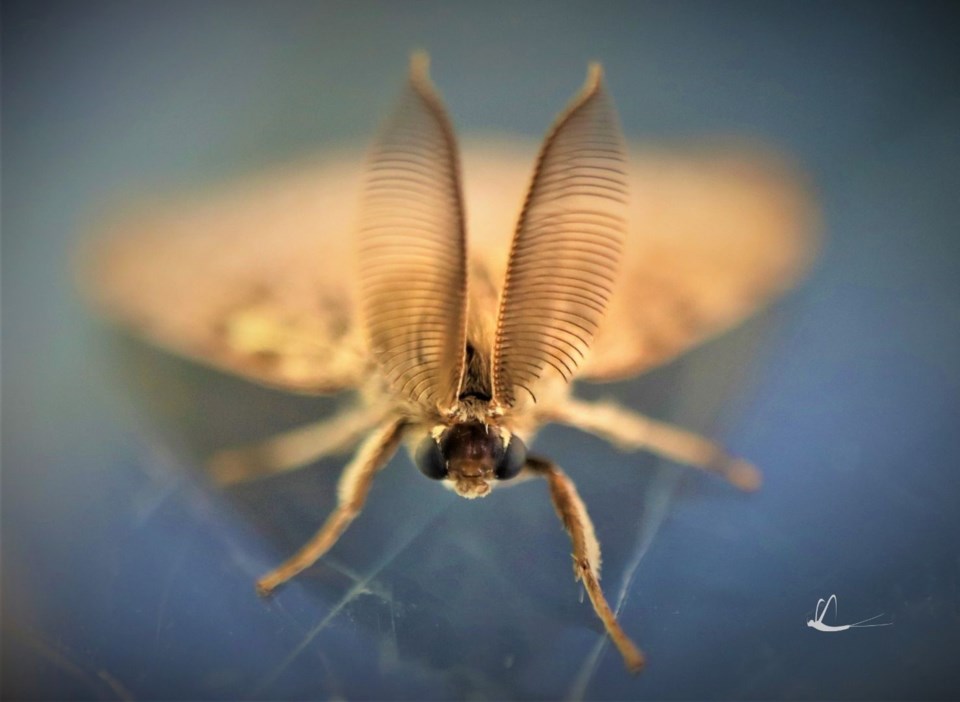Get your dusty lexicon out, there’s another deletion and a couple new entries to make if you haven’t been paying attention.
Gone is the G-word for Roma people. For a stereotypical identification hint, think fortune teller. Sounds like tipsy.
You may be acquainted with the moth formerly referred to as the G-word kind. There’s also an ant commonly called the same and it’s getting ‘updated’ as well.
The progressive step was announced this summer as the larva caterpillar decimated deciduous trees in southern Ontario and a few red oaks in Corbeil.
The Entomological Society of America said it would take input on new names for the moth Lymantria dispar and the ant Aphaenogaster araneoides.
"Words matter, and what we call something matters. And by using the former name for Lymantria dispar, it really was very hurtful to the Romani people," says Chris Stelzig, the executive director of the organization.
For background on how the Romani people, or Roma, Europe's largest ethnic minority face discrimination, see this NPR article.
As a member of a Facebook Group that focuses on insects and arachnids (spiders), I saw plenty of posts of both larva and moths. Made a few too. And it wasn’t surprising a couple of members out of several thousand were reluctant, at first, to abide by the name change. They thought switching the moth moniker, during a time when statues of historical figures are being torn down, is one politically correct step too many.
But this isn’t the wild and woolly days of the Trump presidency. No debates were encouraged or continued within the insect group. An administrator made a polite but firm suggestion to conform or be gone.
Like a good guest, I conformed. But also as a human being, I can rationalize the tiny bit of lost freedom of expression because we gain a measure of positivity. I may never meet a Roma person, but if I do, it might be less embarrassing if the pejorative reference is already off the tip of my tongue.
Basically, there’s very little appetite these days for the deliberate use of a term that demeans a group of people, especially if it is used to describe an invasive, destructive moth species.
There are some people who have drawn a line in the sand and refuse to make adjustments to their vocabulary. They want things to stay the same, or more accurately, they don’t want to change to suit someone’s political or social engineering agenda.
Admittedly, I rolled my eyes and scoffed when informed the moth is now referred to as LDD for short or Lymantria dispar if you want to sound Latin-like. But I came around quickly knowing it’s part of a bigger picture with the goal of someday being nicer to each other.
Also this summer, a new name for Cleveland’s major league baseball team was announced. They’ll be known as the Guardians now instead of the Indians, complete with a new logo to replace the caricature of an Indigenous person.
It took a while. American schools started to drop Indigenous-infused names, logos, and slogans in the 1970s with a couple more changes made every decade since.
Two years ago, Northern Secondary in Sturgeon Falls adopted a Northern Stars logo to replace the Indigenous ‘Braves’ head symbol. And a few years prior, Chippewa Secondary changed its Indigenous person mascot with frontiers-person imagery. In both cases, the schools included the Indigenous community in the discussions about the issue and finding a solution, bringing all involved closer.
There’s another area of social evolution that’s forcing people to take a hard look at how we treat each other: sex and gender.
A story this weekend about the North Bay PRIDE Festival receiving an additional $90,000 for the events planned Sept. 15-19. The federal grant came through the Building Communities Through Arts and Heritage program. The event received $40K from another funder earlier this year.
When posted to the BayToday.ca Facebook Page, it generated more than 400 comments. The terse debate began when some commentators bemoaned the spending of money on that cause instead of the homeless and mental health supports, a major and growing issue North Bay shares with many other cities. Also cited was the lack of money for the disabled and how the North Bay Food Bank could use such financial support instead.
Others argued that special interest groups of all kinds are the problem with governments throwing public money their way for votes.
Supporters of the non-binary gender groups labelled such complaints as homophobic positions (which isn’t fair).
But there were also comments by people seeking to find a middle ground and noted the importance of all the different priorities, highlighting the good for the community to have any money at all coming into it.
They said a notable percentage of the people benefiting from the PRIDE festival also need access to mental health, housing, and food supports.
And maybe the PRIDE parade will lead to a more inclusive community that will put less stress on the marginalized, allowing them to feel good about themselves regardless of their race, religion, gender, or sex.
It’s hard to tell where this social evolution is leading, although there are signs it seems to be moving in the right direction despite hiccups of protest.
Hopefully, we'll find ourselves in a better place where invasive and destructive insects are not named after a group of people and there is no need for parades to demonstrate against oppression in the fight for inclusiveness.
Dave Dale is a veteran journalist and columnist who has covered the North Bay area for more than 30 years. Reader responses related to his work can be sent to [email protected]. To contact the writer directly, email: [email protected] or check out his website www.smalltowntimes.ca
